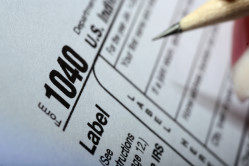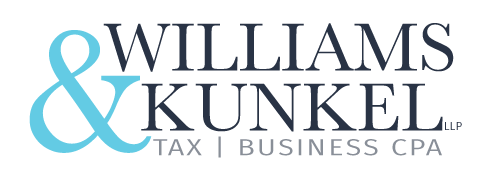Early in a new year is often the time when would-be entrepreneurs think about going into business for themselves. Self-employment can be a terrific opportunity to be your own boss and do something you love to do.
Being your own business also brings with it a special set of tax advantages as well as tax pitfalls that you need to know about. For example, you’ll need to pay your own FICA taxes and take charge of your own retirement plan, among other things.

Being self-employed has a unique set of tax challenges and benefits.
Here are six self-employed tax tips:
Avoid a self-employment tax surprise. Self-employment first-timers often trip on this one. When you have a job, your employer pays half of your Social Security taxes and you pay the other half. When you’re self-employed, however, you pay it all — making both Social Security and Medicare payments (jointly known as FICA taxes) through the self-employment tax.
If you file a Schedule C as a sole proprietor, the net profit listed on your Schedule C (or Schedule C-EZ) is self-employment income and must be included on Schedule SE, which is filed with your federal Form 1040. Schedule SE is used both to calculate self-employment tax and to report the amount of tax owed.
Pay your own “withholding.” Instead of having taxes automatically withheld from your paycheck, you’ll now be responsible for pay-as-you-go taxes in the form of “estimated tax.” You’ll need to make quarterly estimated tax payments using Form 1040-ES to cover your federal income tax and self-employment tax liability. You might have to make state estimated tax payments, as well. If you don’t make estimated tax payments, you may be subject to penalties, interest, and a big tax bill at the end of the year.
Hire family members to save taxes. Hiring a family member to work for your business can create tax savings for you. In effect, you shift business income to your relative. Your business can take a deduction for reasonable compensation paid to an employee, which in turn reduces the amount of taxable business income that flows through to you. Be aware, though, that the IRS can question compensation paid to a family member if the amount doesn’t seem reasonable, considering the services performed. Also, when hiring a family member who’s a minor, be sure that your business complies with child labor laws.
As is the case with wages paid to all employees, wages paid to family members are subject to withholding of federal income and employment taxes, as well as state taxes. But if your business is a sole proprietorship and you hire your child who is under age 18, the wages that you pay your child won’t be subject to FICA taxes.
Set up a self-employed pension plan. The ability to set up a generous, tax-advantaged retirement plan is one major benefit of being self-employed. Possibilities include: Keogh plans; Simplified Employee Pension (SEP); SIMPLE IRA; SIMPLE 401k or an Individual (solo) 401k.
Enjoy all your business deductions. You can deduct a wide range of business expenses, including rent or home office expenses, and the cost of office equipment, computers, cell phones, furniture, supplies and utilities. To be deductible, business expenses must be both ordinary (common and accepted in your trade or business) and necessary (appropriate and helpful for your trade or business). If expenses are part-business and part-personal, you can still deduct the business portion. You can also deduct the business expenses associated with your vehicle, using either the standard mileage allowance or your actual business-related vehicle expenses to calculate your deduction.
Deduct health insurance costs. You can also benefit from the self-employed health insurance deduction, which lets you deduct up to 100 percent of the cost of health insurance that you provide for yourself, your spouse, and your dependents. This deduction is taken on the front of your federal Form 1040 when computing your adjusted gross income, so it’s available whether you itemize or not.
